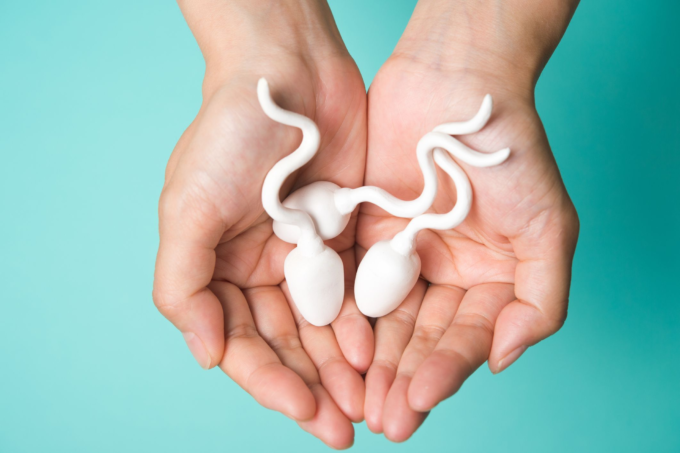The seminal tract is the path that sperm take from the testes to the outside. If an infection occurs at any point along this route, the inflamed areas can damage semen quality and make it harder for the egg to be fertilized.
The good news is that most of these infections respond very well to antibiotics. If semen quality remains low after treatment, in vitro fertilization with ICSI is usually the best option to achieve pregnancy.

What are seminal infections and how do they affect your fertility?
Seminal infections arise when bacteria, fungi, or viruses reach the prostate, seminal vesicles, epididymis, or vas deferens. This can cause:
- Obstruction of seminal flow, causing azoospermia (absence of sperm) or oligozoospermia (fewer than 15 million/mL).
- Reduced sperm motility (asthenozoospermia).
- Abnormal sperm morphology (teratozoospermia).
- Increased sperm DNA fragmentation, making implantation more difficult.
- Production of antibodies against sperm.
- Possible transmission of the infection to your partner.
What are the symptoms?
They are often silent and only detected through a fertility study, but sometimes they present with:
- Changes in semen color or consistency.
- Irritation, itching, or burning when urinating.
- Urethral discharge.
- Discomfort in the perineal or testicular area.
Avoid self-medication. If you notice any of these symptoms, stop sexual activity and consult an assisted reproduction specialist.

Why do they occur?
The most common causes are sexually transmitted bacteria (Chlamydia trachomatis, Neisseria gonorrhoeae) or intestinal flora (such as Escherichia coli or Enterococcus faecalis). The risk is higher with unprotected sex or multiple partners.
Factors that increase the likelihood:
- Poor genital hygiene.
- Invasive urological procedures.
- Weakened immune system.
How is it diagnosed?
The specialist usually:
- Takes your medical history and performs a physical exam.
- Performs a urine culture and semen culture with antibiotic sensitivity.
- Orders molecular tests (PCR).
- Analyzes the semen with a semen analysis and DNA fragmentation test.
With this information, a personalized treatment plan is designed and follow-up studies are performed to confirm that the infection has cleared.
Treatment and options for achieving pregnancy
Initial treatment is usually oral antibiotics for 7–14 days. It is essential that both you and your partner complete the course and maintain sexual abstinence during the medication period.
Once the infection is eradicated, sperm quality is reassessed. If problems persist (concentration < 15 M/mL, motility < 40%, or high fragmentation), IVF+ICSI or additional tests in our fertility laboratory are considered.
Frequently Asked Questions
1. Do they always cause infertility?
No. Many are detected and treated in time, restoring semen quality. However, if inflammation becomes chronic, it can cause scarring and blockages, leading to persistent oligozoospermia or asthenozoospermia. Consult as soon as you notice any symptoms.
2. Can I infect my partner during treatment?
Yes, which is why both partners should be treated simultaneously. Abstinence and condom use after therapy help prevent reinfection.
3. How does DNA fragmentation affect things?
If it exceeds 30%, it can hinder natural fertilization and increase the risk of miscarriage. In those cases, ICSI along with prior antioxidant supplements is recommended.
4. Can they be prevented?
With safe sexual practices (condom use), good genital hygiene, and regular check-ups if you have risk factors. A healthy lifestyle (balanced diet, exercise, no smoking) also strengthens your immune system.
Sources
- National Library of Medicine. (2023). Male reproductive system infections. MedlinePlus. https://medlineplus.gov
- World Health Organization. (2021). WHO laboratory manual for the examination and processing of human semen (6th ed.). Geneva: WHO Press.
- Dohle, G. R., Diemer, T., Kopa, Z. (2019). EAU Guidelines on Male Infertility. European Urology, 76(4), 616–628. https://doi.org/10.1016/j.eururo.2019.08.029
- Esteves, S. C., Agarwal, A. (2020). Role of oxidative stress in male infertility. Clinics, 75, e1909. https://doi.org/10.6061/clinics/2020/e1909
Remember that each case is unique. If you are looking to start a family, do not hesitate to consult an assisted reproduction specialist: we are here to support you every step of the way.

